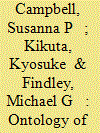|
|
|
Sort Order |
|
|
|
Items / Page
|
|
|
|
|
|
|
| Srl | Item |
| 1 |
ID:
158452


|
|
|
|
|
| Summary/Abstract |
Is prevention the answer to escalating violent conflict? Conflict prevention uses carrots and sticks to deter future violence. Its power thus rests on the credibility of policy-makers' commitment to supply the carrot or stick in a timely manner. Unfortunately, there are several political and bureaucratic barriers that make this unlikely. First, it is difficult for policy-makers to sell preventive actions to their constituencies. In contrast with core security interests (like nuclear warfare), an uptick in violence in a faraway, nonstrategic country provides a less convincing call for action. Second, preventive decisions are difficult to make. Decision-makers are predisposed to avoid making difficult decisions until a crisis breaks out and they are forced to act. Third, preventive actions are political, not technical, requiring the use of precious political capital for uncertain outcomes whose success may be invisible (manifest in the absence of violence). Perhaps, if decision-makers are able to overcome these obstacles and make more credible commitments to conflict prevention, then conflict prevention will become a more credible solution to violent conflict.
|
|
|
|
|
|
|
|
|
|
|
|
|
|
|
|
| 2 |
ID:
152815


|
|
|
|
|
| Summary/Abstract |
International relations scholarship on intrastate peace and conflict largely conceptualizes peace as an absence of war and, to some extent, the presence of a minimal degree of democracy. Empirically, scholars treat peace as a non-event, identifying it as the absence of military battles rather than (or in addition to) the presence of conflict-mitigating institutions or activities. This approach hearkens back to a bygone debate about negative and positive peace, and illustrates that negative peace conceptualizations dominate existing scholarship. In this article, we unpack the conceptual foundations of peace to account more fully for cooperation, rather than just violent conflict. We then operationalize this expanded conceptualization of peace through a latent variable measurement approach that carefully aggregates both conflict and cooperation events. We ground the measurement model in data from Colombia for the period of 1993 to 2012. In so doing, we present a new, empirically grounded ontology of peace that we expect could be useful for causal theorizing and testing in other work.
|
|
|
|
|
|
|
|
|
|
|
|
|
|
|
|
| 3 |
ID:
083192


|
|
|
|
|
| Publication |
2008.
|
| Summary/Abstract |
An ad hoc group of reforms aimed at achieving greater integration of the UN system during peace operations has largely ignored the numerous barriers to their implementation. Accordingly, these integration reforms have fallen far short of their goal of increasing the efficiency and effectiveness of the UN's efforts in countries in, or emerging from, conflict. Integration reforms are hindered by the absence of both adequate organizational change and accompanying incentives for implementation. The article outlines some of the key barriers to integration within the UN structure, and within war-to-peace transitions generally. The analysis highlights evidence of the need to revise these reforms, and concludes with suggestions for altering UN procedures and practices to increase the efficiency and effectiveness of its post-conflict efforts
|
|
|
|
|
|
|
|
|
|
|
|
|
|
|
|
|
|
|
|
|